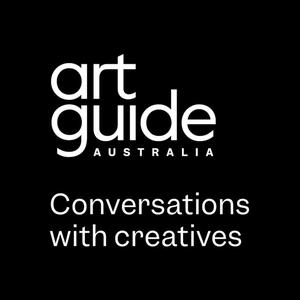
Art Guide Australia Podcast
Art Guide Australia
Art Guide Australia is a print and online publica…
- 35 minutes 4 secondsNotions of Care #3: Polly Stanton on how culture and nature reflect one another
“And I definitely think that’s what landscape is for me, it is a questioning about living and life and what we do in places and what we leave behind,” says Polly Stanton in our latest podcast, talking about how her art practice looks at the entwined relationship between culture and nature.
Stanton is part of the exhibition that gives this podcast it’s title, Notions of Care. The exhibition brings together five artists and groups to consider care in art making, through materials, how we relate to one another, and as an approach to the world.
Stanton is an artist and filmmaker who primarily creates moving image works that look at how human action and use of the landscape effect not only the landscape itself, but how we perceive and interpret the landscape. Her practice focuses on sound and visuals, with an immersive process which sees Stanton spending much time in the sites she captures, from the Goldfields of Victoria to the landscape of Queenstown.
We start by talking about care in the arts, and how Stanton grew up with parents in the entertainment industry, where she early on witnessed the struggle to sustain a creative practice. We also talk through her early work in cinema and screenwriting, and the eventual shift into contemporary art.
Stanton takes us through her process of working in the landscape, and how it’s not about romanticising the environment but about understanding the world in non-didactic ways. And for someone whose work deals directly with human effects on the environment, and with ever-growing climate change threat, Stanton tells us how she feels about the future.
You can listen back to previous episodes in this series with Kate Tucker and Katie West.
Notions Of Care
Ararat Gallery TAMA
Until 26 February 202326 January 2023, 9:01 pm - 29 minutes 16 secondsNotions of Care #2: Katie West on meditation, conversation and decolonisation
“I was thinking about meditation as being a way of creating calm and openness so that more constructive conversation can happen,” says Katie West in the second episode of Notions of Care.
In our latest podcast, West talks about dyeing textiles, creating spaces of meditation, and facing experiences of racism—all in a conversation centred on care and creating, linking with the NETS Victoria touring exhibition, Notions of Care at Ararat Gallery TAMA.
The show features five artists and groups to consider care in art making, through materials, how we relate to one another, and as an approach to the world.
West is a Yindjibarndi Western Australian artist, based in Noongar Ballardong country in Western Australia. She exhibits incredibly moving installations, which often feature dyed textiles and native plants which are sewn and woven.
In 2016 as part of Next Wave Festival she exhibited the work Decolonist, which looks at how meditation can be a way to decolonise the self. And she later extended on this for a stunning installation at TarraWarra Museum of Art, giving audiences a space to meditate and contemplate.
Now, her work in Notions of Care could be described as a tea installation, and she talks through this work and how it came about. We also talk about what the concept of care means to her, how she came to meditating and bringing this into the gallery space, and the process of walking, gathering, and dyeing the materials for her textiles.
West also talks about the experiences of racism she has faced, and her words of encouragement to other people who have had similar experiences.
You can listen back to the first episode of Notions of Care with Kate Tucker.
Notions Of Care
Ararat Gallery TAMA
Until 26 February 2023A kind thank you to our sponsors for this series. The show Notions of Care is a Bus Projects exhibition touring with NETS Victoria, which is curated by Kathryne Genevieve Honey and Nina Mulhall. This project is supported by the Victorian Government through Creative Victoria and received assistance from NETS Victoria’s Exhibition Development Fund 2020, supported by the Victorian Government through Creative Victoria.
You can subscribe to the Art Guide podcast on Apple Podcasts and Spotify, and don’t forget to rate the show as it helps people find us.
Produced and presented by Tiarney Miekus, engineering by Patrick Telfer, and music by Mino Peric.
8 December 2022, 11:50 pm - 35 minutes 18 secondsNotions of Care #1: Kate Tucker on creating to explain these times
“I’m doing that something humans do: I’m trying to explain this time to myself by making something from it and about it,” says artist Kate Tucker. “I’m trying to make myself something that I need to live now.”
Tucker is our first guest for a new podcast mini-series on art, creating and care, linking with the NETS Victoria touring exhibition Notions Of Care. The show brings together five artists and groups to consider care in art making, whether through materials, how we relate to one another, and as an approach to the world.
Tucker works across painting, sculpture and installation, creating incredible assemblage-like pieces that are compelling in their construction. Tucker’s process involves the layering of various materials and textures, expanding our idea of what painting can be by subverting familiar notions of the form.
Tucker talks about what care means to her, and what it means to approach an art practice with care. We also talk about detaching from external notions of success, how and why she creates her works, and the importance of having aesthetic experiences.
Notions Of Care
Ararat Gallery TAMA
Until 26 February 2023A kind thank you to our sponsors for this series. The show Notions of Care is a Bus Projects exhibition touring with NETS Victoria, which is curated by Kathryne Genevieve Honey and Nina Mulhall. This project is supported by the Victorian Government through Creative Victoria and received assistance from NETS Victoria’s Exhibition Development Fund 2020, supported by the Victorian Government through Creative Victoria.
You can subscribe to the Art Guide podcast on Apple Podcasts and Spotify, and don’t forget to rate the show as it helps people find us.
Produced and presented by Tiarney Miekus, engineering by Patrick Telfer, and music by Mino Peric.
25 November 2022, 2:10 am - 34 minutes 26 secondsConflated #3: Eugenia Lim on togetherness in divisive times
“Then we’ll get real systemic change,” says Eugenia Lim when talking about making structural changes in the art world that reflect genuine diversity, “but I think we’re still just the tip of the iceberg. It’s still quite surface, but it’s good to be even pushing and talking about these things I think.”
At a moment where politics and individuals feel increasingly divided, Lim creates videos, film and installations that look beyond divisiveness, capitalism and exploitation, to forefront the power of collectivity—something she speaks to in our latest podcast series Conflated.
This series centres on the ideas of inflation and conflation, linking with a touring exhibition also titled, Conflated. In ways both metaphorical and material, the show looks at ideas of inflation and deflation through creative, environmental, and political ways. And one of the artists in the show is Lim.
Lim is an Australian artist of Chinese-Singaporean descent and her work partly explores this by subverting cultural stereotypes in ways both intelligent and very witty. In past works she’s taken on invented personas, inhabiting them across multiple videos, performances and sites.
Lim is also one of the previous co-directors of the experimental art organisation Aphids, and we talk about one of Aphids’s latest performance works EASY RIDERS, which looks at the gig economy and capitalism—and we discuss how worker exploitation is an ongoing concern in Eugenia’s work. In addition to her thought-provoking practice, Lim also has co-directed the inaugural Channels Festival, and she was founding editor of the journal Assemble Papers.
In our conversation she talks through her latest work with Kyneton locals, an area in regional Victoria, and how her work speaks to collective acts and what this means in a divisive political time like the one we’re living.
You can also listen back to the first episode of this series with artist Zoë Bastin on conflation, bodies and transformative politics, and the second episode with David Cross on inflatables, experimentation and precarity.
With a current showing at ANU School of Art and Design Gallery, NETS Victoria are touring Conflated nationally throughout 2022 and 2023:
ANU School of Art and Design Gallery
(Canberra ACT)
29 September—4 NovemberLogan Art Gallery
(Logan QLD)
29 July 2023—3 September 2023Swan Hill Regional Art Gallery
(Swan Hill VIC)
1 October 2023—3 December 2023This series is kindly sponsored by NETS Victoria who are nationally touring Conflated, assisted by the Australian Government’s Visions of Australia program and the Victorian Government through Creative Victoria.
Produced and presented by Tiarney Miekus, engineering by Patrick Telfer, and music by Mino Peric.
27 October 2022, 9:13 pm - 33 minutes 52 secondsConflated #2: David Cross on inflatables, experiment and precarity
“I think it is also about the fact that, in terms of power structures, artists want to—as much as they can—remove mechanisms that hinder their capacity for creative freedom,” says David Cross in the second episode of our latest podcast, Conflated.
Conflated looks at ideas of inflation and conflation, linking with a touring exhibition also titled, Conflated. Whether metaphorical or material, the show explores how ideas of inflation and deflation can be taken in creative, environmental, and political ways. And one of the 11 artists showing is David Cross.
New Zealand-born but living and working in Melbourne, Cross has a truly expansive practice—as well as being an artist he’s a curator, academic, art professor, writer and musician. For his art practice, he’s known for creating works that use inflatables in performative ways, looking at dualities such as protection and precarity, and the inter-relationships between people.
Cross talks about how he became interested in inflatables, what he’s showing for Conflated, and his aspiration to create works that are at once playful without being contrived. As an academic and professor in art schools, Cross also talks about art school models and the push and pull between experimentation and precarity, as well as the professionalism of the art world.
You can also listen back to the first episode of this series with artist Zoë Bastin on conflation, bodies and transformative politics.
With a current showing at ANU School of Art and Design Gallery, NETS Victoria are touring Conflated nationally throughout 2022 and 2023:
ANU School of Art and Design Gallery
(Canberra ACT)
29 September—4 NovemberLogan Art Gallery
(Logan QLD)
29 July 2023—3 September 2023Swan Hill Regional Art Gallery
(Swan Hill VIC)
1 October 2023—3 December 2023This series is kindly sponsored by NETS Victoria who are nationally touring Conflated, assisted by the Australian Government’s Visions of Australia program and the Victorian Government through Creative Victoria.
Produced and presented by Tiarney Miekus, engineering by Patrick Telfer, and music by Mino Peric.
13 October 2022, 10:29 pm - 28 minutes 36 secondsConflated #1: Zoë Bastin on conflation, bodies and transformative politics
“The ideas that we attribute to bodies are arbitrary and often accepted but don’t really exist,” says Zoë Bastin in our latest podcast series, Conflated. “Bodies are very malleable substances that can become whatever they want.”
Conflated is a short series centred on the ideas of inflation and conflation, linking with a touring exhibition aptly titled, Conflated. Whether metaphorical or material, ideas of inflation and deflation can be taken in creative, environmental, and political ways. The 11 contemporary artists in Conflated show this in myriad forms—which Bastin speaks to.
Bastin is one of the co-curators and exhibiting artists in Conflated. While known for her dance and choreography practice, Bastin also works across sculpture, video, radio and printmaking.
Bastin talks about the ideas behind Conflated—both as an exhibition and a concept—as well as how she began dancing at an incredibly young age, how dance can be a gendered form, and what transformative possibilities Bastin looks to beyond this. We also talk about queer politics, shame, how bodies are objectified in art and life, and Bastin’s advice to younger artists.
With a current showing at ANU School of Art and Design Gallery, NETS Victoria are touring Conflated nationally throughout 2022 and 2023:
ANU School of Art and Design Gallery
(Canberra ACT)
29 September—4 NovemberLogan Art Gallery
(Logan QLD)
29 July 2023—3 September 2023Swan Hill Regional Art Gallery
(Swan Hill VIC)
1 October 2023—3 December 2023This series is kindly sponsored by NETS Victoria who are nationally touring Conflated, assisted by assisted by the Australian Government’s Visions of Australia program and the Victorian Government through Creative Victoria.
Produced and presented by Tiarney Miekus, engineering by Patrick Telfer, and music by Mino Peric.
29 September 2022, 12:01 am - 34 minutes 53 secondsArt Abroad #3: Jonathan Watkins on defining this period of art
“The art world is becoming arguably much more interesting now as a result of these kinds of developments,” says curator and director Jonathan Watkins in the third episode of Art Abroad. “I’m certainly not a lone voice, there are a lot of people challenging these fundamental assumptions about what we’re dealing with and why we’re dealing with it.”
While Art Abroad focusses on those involved in art who moved from Australia and ended up in London, Watkins is the director of the renowned Ikon gallery in Birmingham, two hours outside of London.
Born in the UK, at age 12 Watkins came to Australia with his parents. He studied art history in Sydney, and eventually moved back to London in the 1980s, holding curatorial roles at Chisenhale and Serpentine galleries.
In 1999 he became director of Ikon, a role he’s held for 23 years. Started in the 1960s, Ikon is a gallery that at once gives accessible and challenging notions of contemporary art. In an interesting link to Australia, Jonathan’s predecessor in the role was none other than Elizabeth Ann MacGregor. However after two decades at the gallery, Jonathan will be stepping down next month. We talk about this, as well as his moves to and from the UK, and the international outlook of his practice. He was the artistic director of the Biennale of Sydney in 1998, then headed the Tate Triennial in 2003, and the Shanghai Biennale in 2006—and that’s just to name a few.
Finally Watkins talks about making contemporary art accessible while not reducing its potency, and what will define this current period of art.
This series is kindly sponsored by Leonard Joel Auctioneers and Valuers, based in Melbourne and Sydney. Produced and presented by Tiarney Miekus, engineering by Patrick Telfer, and music by Mino Peric.
16 September 2022, 12:16 am - 34 minutes 2 secondsArt Abroad #2: Jennifer Higgie on arts writing and women in art history
“I was sort of staggered,” says writer Jennifer Higgie. “Why hadn’t I ever been taught about these women? Why weren’t they included in mainstream art histories?” Higgie is talking about the marginalisation of women in art history—and it’s something she speaks to in our latest podcast episode.
Art Abroad looks at artists and creatives who moved from Australia to London, and while Jennifer Higgie studied fine art in Canberra and Melbourne, she moved to London in the 1997 when she was in her late twenties. Starting as a painter, she soon turned to writing in London, eventually holding a two-decade editorial role at Frieze arts magazine from the late 1990s until 2021.
A few years ago, she began posting about historical women artists on Instagram, which gained a mass following, and led to the Bow Down podcast on women artists. Last year she published the brilliant book The Mirror and the Palette: Rebellion, Revolution and Resilience: 500 Years of Women's Self-Portraits, which looks at women in art history from the 1500s onwards, focussing on women artists who at some point painted a self-portrait. Higgie shows what it took for these women to create, and how individual their creations are.
In our podcast interview, Higgie talks about her earlier life as an artist, her move to London and her time at Frieze. She also chats about the nature of arts criticism, the experience of editing a renowned arts magazine, and why women have been outcasted from mainstream art history.
The Mirror and the Palette: Rebellion, Revolution and Resilience: 500 Years of Women's Self-Portraits is published by Simon and Schuster and Hachette Australia, available here.
This series is kindly sponsored by Leonard Joel Auctioneers and Valuers, based in Melbourne and Sydney.
Produced and presented by Tiarney Miekus, engineering by Patrick Telfer, and music by Mino Peric.
19 August 2022, 4:11 am - 32 minutes 13 secondsArtists Abroad #1: David Noonan on London, collage, performance, and colour
“It’s really about looking at images and putting them together, and looking at how they behave,” says David Noonan in our latest podcast series Artists Abroad, talking with artists who’ve moved to London and what the move has meant for their practice—while also chatting about the art itself.
Ballarat-born, Noonan has lived and worked in London since 2005. He’s acclaimed and internationally exhibited for his stunning black-and-white works created from both figurative and abstract found images that stem from theatre, dance, subcultures and social media. The works span video to collage to tapestry, looking at the interplay of the figurative and abstract, but also more emotive states like mystery and the uncanny.
Noonan’s most recent Australian show at TarraWarra Museum of Art, Only when it’s cloudless, functions like one large installation where the works often capture moments not necessarily of performance, but when the mask drops. There is something both defiant and vulnerable at play.
Noonan talks about growing up in Ballarat, his trips to London and his eventual move, and if he feels leaving Australia has changed the trajectory of his practice and career. We also chat about how Noonan creates his works, questions on authenticity, and how he’s recently bought colour into his practice.
Only when it’s cloudless
David Noonan
TarraWarra Museum of Art
Until 10 JulyThis series is kindly sponsored by Leonard Joel Auctioneers and Valuers, based in Melbourne and Sydney.
Produced and presented by Tiarney Miekus, engineering by Patrick Telfer, and music by Mino Peric.
8 July 2022, 1:03 am - 31 minutes 55 secondsThe Long Run #10: Bonita Ely on art as a catalyst
“I decided that art essentially is a communication, so my basis of my work is conceptual,” says artist Bonita Ely, a pioneer in environmental art in Australia, in our latest episode of The Long Run, a podcast talking with artists who have 60-year practices.
Known for her sculpture, installations and performance art, Ely’s work is considered ground breaking, particularly through her feminist and environmentally driven works. She’s an often-cited influence for many environmental artists, and her works have been exhibited at documenta 14, and collected by institutions like New York’s Museum of Modern Art.
Ely grew up in the rural Victorian town of Robinvale, and she spent time at the Murray River, the degradation of which would become a crucial topic in her art from the 1970s onwards. Her first major work relating to the river was the 1980 performance, Murray River Punch, which is a highly significant work that we talk through. Throughout the decades, her art has tracked severe ecological decline in across the Australian landscape.
Ely also discusses her upbringing, creating art at a young age, and the freedom her parents her gave her to pursue her interests. The artist also explains how she came to performance art, and the role of trauma in her work at levels personal, ecological and political. Finally Ely talks through her role in Australia’s feminist art movement, and her idea of art as a catalyst.
This series is kindly sponsored by Leonard Joel Auctioneers and Valuers, based in Melbourne and Sydney. Produced and presented by Tiarney Miekus, engineering by Patrick Telfer, and music by Mino Peric.
7 December 2021, 2:07 am - 26 minutes 36 secondsThe Long Run #9: Margaret Dodd on feminism, cars and identity
“Well, what I’d always noticed is the way men always had to be the drivers, right? And this was kind of a symbol of how they behaved in real life, in marriages and relationships, in business world, in politics, everywhere. They were always having to be the drivers.” So says Maragaret Dodd in the ninth episode of The Long Run, a podcast dedicated to talking with artists who have been practicing for 60 years.
Many people first discover Dodd’s practice through her brilliant ceramic holden cars from the early 1970s, where some are dressed up as brides, others as mothers and babies. Titled This Woman is Not a Car, the series also included a film of the same title. Based in feminist concerns, the iconic collection looks at themes central to Dodd’s work: femininity and masculinity, sexuality, capitalism and the links between car manufacturing and personal and national identity. They were recently collected in Dodd’s 2020 exhibition Margaret Dodd: New acquisitions at the Art Gallery of South Australia.
Dodd talks about all of these things. She talks of her upbringing in Adelaide, her move to America with her husband (he was a physicist invited to work at Yale), and her time studying art in California. Dodd also reflects on how she became part of the funk ceramics movement in the 1960s, which bought much humour and less convention to ceramics.
From here Dodd tells us her thoughts on being a housewife, the isolation she felt when she moved back to Adelaide after being in the United States, how this influenced the profound feminism of her work, the links between sexism and cars, and the reactions to her film This Woman Is Not A Car.
Dodd’s work is also currently showing in two exhibitions:
GAGPROJECTS at Explore Sydney Contemporary
Online
11—21 NovemberClay Dynasty
Powerhouse Museum
11 October—29 January 2023This series is kindly sponsored by Leonard Joel Auctioneers and Valuers, based in Melbourne and Sydney.
Produced and presented by Tiarney Miekus, engineering by Patrick Telfer, and music by Mino Peric.11 November 2021, 9:06 pm - More Episodes? Get the App
Your feedback is valuable to us. Should you encounter any bugs, glitches, lack of functionality or other problems, please email us on [email protected] or join Moon.FM Telegram Group where you can talk directly to the dev team who are happy to answer any queries.
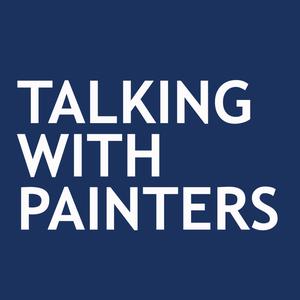 Talking with Painters
Talking with Painters
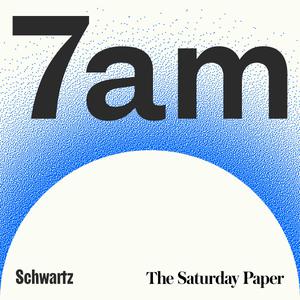 7am
7am
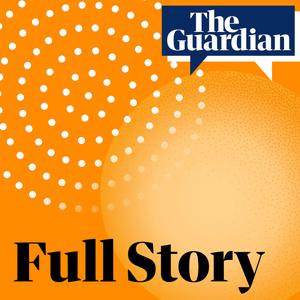 Full Story
Full Story
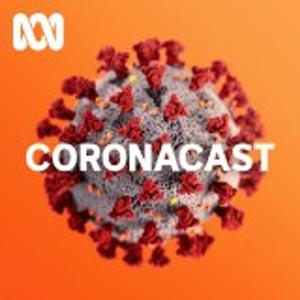 Coronacast
Coronacast
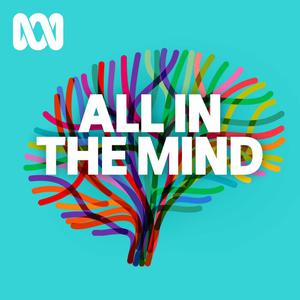 All In The Mind
All In The Mind